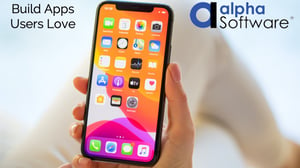 Failure is a way of life for app developers. An astonishing percentage of people abandon mobile apps soon after they download them. But Andrew Chen, general partner at the Silicon Valley venture capital firm Andreessen Horowitz, and the man behind many successful startups including Uber and others, says it needn’t be that way.
Failure is a way of life for app developers. An astonishing percentage of people abandon mobile apps soon after they download them. But Andrew Chen, general partner at the Silicon Valley venture capital firm Andreessen Horowitz, and the man behind many successful startups including Uber and others, says it needn’t be that way.
His blog post, “New data shows losing 80% of mobile users is normal, and why the best apps do better,” is a must-read for any mobile app developer looking to succeed.
Chen worked with mobile intelligence startup Quettra to get data about app usage and retention rates from more than 125 million mobile phones.
What he found may sink the hopes of countless app developers. The average app, he says, loses an astonishing 77 percent of users after three days. Within 30 days, 90 percent leave. Within three months, 95 percent are gone.
The average app loses 77% of users after three days. Within 30 days, 90% leave. Within three months, 95% are gone.
- Andrew Chen, Andreessen Horowitz

He notes, “The other way to say this is that the average app mostly loses its entire user base within a few months, which is why of the [more than] 1.5 million apps in the Google Play store, only a few thousand sustain meaningful traffic.”
Of more than 1.5 million apps in the Google Play store, only a few thousand sustain meaningful traffic.
- Andrew Chen, Andreessen Horowitz
Ankit Jain, who collaborated with Chen on the blog post, explains, “Users try out a lot of apps but decide which ones they want to ‘stop using’ within the first 3-7 days. For ‘decent’ apps, the majority of users retained for 7 days stick around much longer. The key to success is to get the users hooked during that critical first 3-7 day period.”
Chen adds, “This maps to my own experience, where I see that most of the leverage in improving these retention curves happen in how the product is described, the onboarding flow, and what triggers you set up to drive ongoing retention.”
The retention rate research shows that the most successful apps get used repeatedly in the first week. Unsuccessful apps don’t.
Here’s Chen’s conclusion about how you can help make sure your app succeeds: “Target the first few days of usage, and in particular the first visit.” That means contacting those who have downloaded it with useful information about how to use the app, and how it can help them. He suggests different messages for different types of apps:
- “For a social service, you might want users to import their address book and connect to a few friends, to give them a strong feed experience and opt them into friend notifications.
- “For an SaaS analytics product, you might want users to put their JS tag on their site, so that you can start collecting data for them and sending digest emails.
- “For an enterprise collaboration product, you might want users to start up a new project and add a couple coworkers to get them started.”
 How to Make a Successful Mobile App From the Start
How to Make a Successful Mobile App From the Start
It's much easier to build a mobile application that's great from the start, rather than trying to fix it and reinvigorate it after it's been abandoned by users. Read how to build a mobile application and get free software to build mobile apps from Alpha Software.






Comment